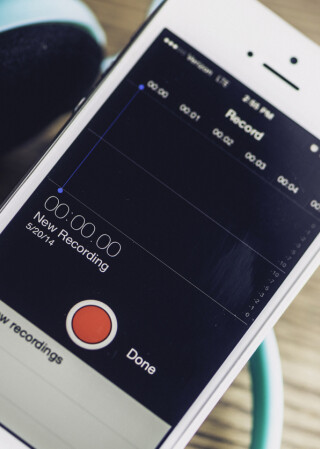In the Family Law world, we can come across situations where a party is behaving inappropriately in parenting proceedings. The other parent often makes a recording during changeover, or during an altercation, and asks – Can we use this in Court?
The Supreme Court of New South Wales recently gave us a guide as to when types of recordings can be admitted into evidence.
RATHSWOHL V COURT [2020] NSWSC 1490
In this matter, three adult children were disputing their entitlements to their late Father’s Estate. Prior to the Father’s passing, the Defendant, Court, claimed that her two siblings, Davies and Rathswohl, had left the care of their elderly parents to her alone. Davies and Rathswohl disagreed.
Court had made these accusations before, and not just before a Judge. Court had made her views clear to her siblings, her Father’s nursing home, and to her Father. Court boasted to her siblings that her Father had prepared a new Will, where she got the main asset in his Estate – the family home.
Davies then recorded a conversation she had with her Father before he passed away. Davies asked her Father a number of questions about Court’s involvement with his care. Davies confirmed that her Father did not know that the conversation was being recorded.
Davies said that she recorded the conversation “to prove that (Court) wasn’t there every day like she stated she was”. Davies was concerned that Court was not involved in caring for their Father to the extent that she claimed and Davies wanted to record the father’s comments on the issue.
It is an offence to record a private conversation under section 7(1)(b), Surveillance Devices Act 2007 (NSW). Helpfully, however, Rathswohl v Court outlines the circumstances where a judiciary have said “yes”.
Latham v Latham (2008):
- A father made secret recordings of the mother and children, including abusive comments which suggest that the mother was a child abuser.
- The Judge accepted that the recordings were reasonably necessary to protect the father’s lawful interest, including the likelihood that the mother would deny the conversations and that the husband needed to protect himself from risk of the accusation that he had fabricated the conversations and to avoid being labelled a liar.
Groom v Police (2015):
- A father was recorded by his former partner during handover of their child. The mother had previously made allegations that the father was breaching an intervention order but had problems in proving the allegations
- The Judge concluded that the recording was admissible. While the breach was a relatively minor crime, “a court should more readily accept that a recording was carried out in pursuance of a person’s lawful interest in circumstances where that person had a genuine concern for their own safety”.
Gawley & Bass (2016)
- The father made a report to Child Protection Services about the mothers temper and expressed concerns that the mother had assaulted one of the children. He arranged to meet with the mother to discuss the concerns. The father recorded the mother in an attempt to corroborate assertions of abuse and the parenting capacity of the mother.
- The Judge concluded that the lawful interest of the father, as a parent of the children, was to protect the children from the risk of harm and concluded that it was reasonably appropriate for the father to record the conversation
The Take Away
Was it reasonably necessary to make a recording for the protection of lawful interest?
Davies may have had concerns that if her Father were to pass, recording these admissions was one way of ensuring that Davies’ evidence on this issue was not disbelieved.
Davies was not seeking to extract money but, rather, to ensure that Court did not enhance her claims to the father’s Estate on a false basis. A dispute had crystallised into a real and identifiable concern about the imminent potential for significant harm to Davies’ lawful interests.
There are times when you can rely on a conversation recorded without consent
However, this is limited to specific circumstances – where it is reasonably necessary to protect a party’s lawful interest.
For a recording not to be an offence, these are the issues Rothswahl wants us to think about:
- Whether the purpose of the conversation was to obtain admissions in support of a legitimate purpose.
- Whether it was important to protect oneself from being accused of fabricating a conversation and recoding the conversation was the only practical means of refuting such an allegation
- Whether there were other practical means of recoding the conversation, such as reporting matters to police or making a file note.
- Whether there was a serious dispute on foot between the parties. Recordings of conversations ‘just in case’ there is a dispute, or for the sake of making an accurate record of what was said, is not enough.
Are you recording your ex-partner? Are they recording you?
If you require more information on the above please contact Nevine Youssef on nyoussef@marsdens.net.au or by phoning 02 4626 5077.
The contents of this publication are for reference purposes only. This publication does not constitute legal advice and should not be relied upon as legal advice. Specific legal advice should always be sought separately before taking any action based on this publication.


